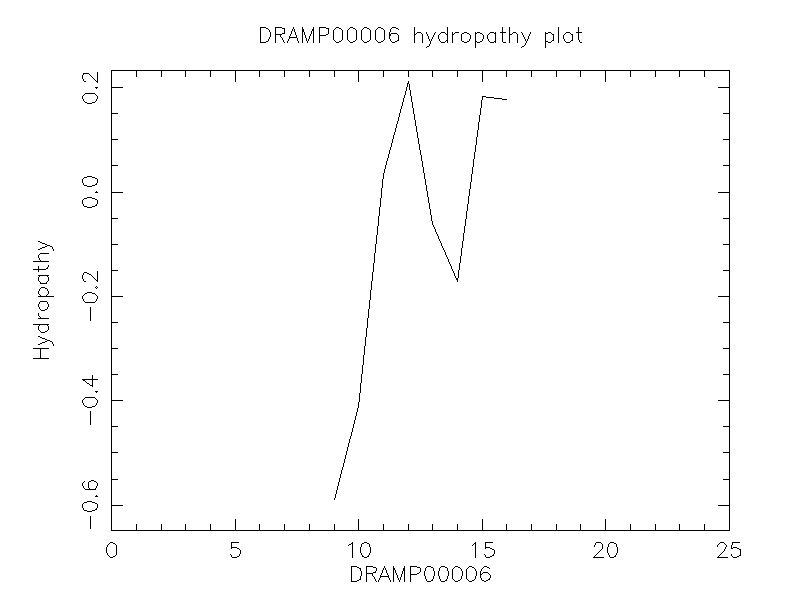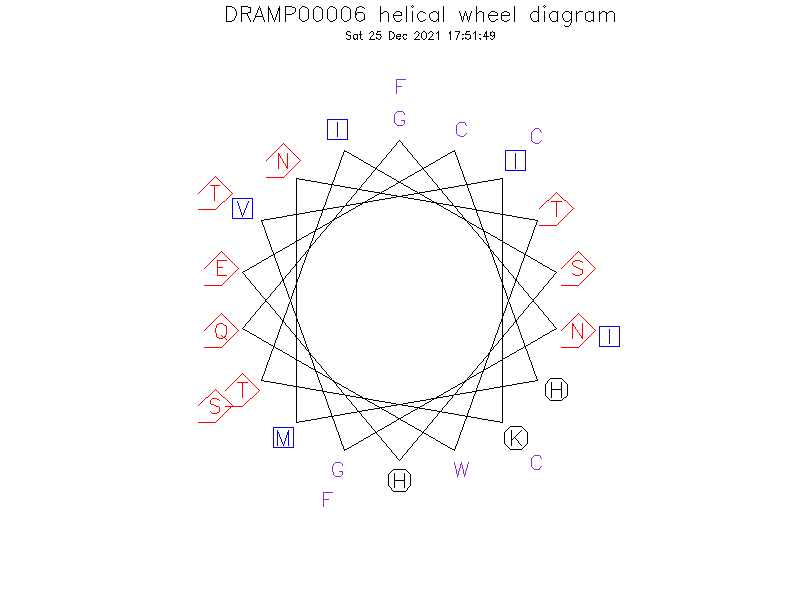General Information
-
DRAMP ID
- DRAMP00006
-
Peptide Name
- Butyrivibriocin OR79 (Bacteriocin)
-
Source
- Butyrivibrio fibrisolvens (Gram-positive bacteria)
-
Family
- Belongs to the lantibiotic family (Class I bacteriocin)
-
Gene
- bvi79
-
Sequence
- GNGVIKTISHECHMNTWQFIFTCCS
-
Sequence Length
- 25
-
UniProt Entry
- O85355
-
Protein Existence
- Predicted
Activity Information
-
Biological Activity
- Antimicrobial, Antibacterial, Anti-Gram+
-
Target Organism
-
- Gram-positive bacteria: Fibrisolvens, Butyrivibrio crossotus, Clostridium clostridiforme, Lachnospira multiparus, Ruminococcus flavefaciens.
-
Hemolytic Activity
-
- No hemolysis information or data found in the reference(s) presented in this entry
-
Cytotoxicity
-
- Not included yet
-
Binding Target
- Cell membrane
Structure Information
-
Linear/Cyclic
- Not included yet
-
N-terminal Modification
- Not included yet
-
C-terminal Modification
- Not included yet
-
Nonterminal Modifications and Unusual Amino Acids
- Not included yet
-
Stereochemistry
- Not included yet
-
Structure
- Not found
-
Structure Description
- Not found
-
Helical Wheel Diagram
-
PDB ID
- None
-
Predicted Structure
- There is no predicted structure for DRAMP00006.
Physicochemical Information
-
Formula
- C124H186N34O36S4
Absent Amino Acids
- ADLPRY
Common Amino Acids
- CIT
Mass
- 2857.29
PI
- 6.89
Basic Residues
- 3
Acidic Residues
- 1
Hydrophobic Residues
- 7
Net Charge
- +2
-
Boman Index
- -19.85
Hydrophobicity
- 0.12
Aliphatic Index
- 58.4
Half Life
-
- Mammalian:30 hour
- Yeast:>20 hour
- E.coli:>10 hour
Extinction Coefficient Cystines
- 5625
Absorbance 280nm
- 234.38
Polar Residues
- 12
DRAMP00006

Comments Information
Function
- Lanthionine-containing peptide antibiotic (lantibiotic). The bactericidal activity of lantibiotics is based on depolarization of energized bacterial cytoplasmic membranes, initiated by the formation of aqueous transmembrane pores.
PTM
- Maturation of lantibiotics involves the enzymic conversion of Thr, and Ser into dehydrated AA and the formation of thioether bonds with cysteine. This is followed by membrane translocation and cleavage of the modified precursor.
Literature Information
- ·Literature 1
-
Title
- Evidence for production of a new lantibiotic (butyrivibriocin OR79A) by the ruminal anaerobe Butyrivibrio fibrisolvens OR79: characterization of the structural gene encoding butyrivibriocin OR79A.
-
Pubmed ID
- 10224011
-
Reference
- Appl Environ Microbiol. 1999 May;65(5):2128-2135.
-
Author
- Kalmokoff ML, Lu D, Whitford MF, Teather RM.

